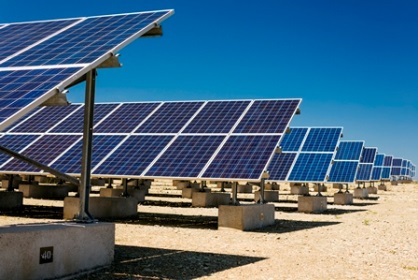
Increasing the Utilization of Solar Energy Systems in the Current Electricity Infrastructure by Dr Onur Taylan
Solar & Wind Energy Systems (SWES) Research Group of METU NCC SEES
Fossil fuel depletion and global warming… These are the terms we have begun to pronounce related to extensive fossil fuel use. To overcome the disadvantages of fossil fuels, researchers have focused on sustainable and renewable alternatives. Solar energy is considered as an abundant, renewable energy source that can be an alternative to fossil fuels. However, solar energy is variable as well as intermittent. In other words, solar resource on Earth surface is high on a clear day, it is lower on a cloudy day and it is not available during night time. Thus, solar energy may not provide the all electricity demand when it is needed, unlike fossil fuel-based conventional power plants. For this reason, solar energy cannot totally replace the fossil fuels today, if there is no energy storage system available or a distributed energy generation mix.
 Dr. Onur Taylan, a member of the Solar and Wind Energy Research Group at Middle East Technical University Northern Cyprus Campus (METU NCC), works on methodologies to increase the utilization of solar energy systems in the current electricity infrastructure with his research group. The solar energy research includes photovoltaic and solar chimney power plants. The main question of interest is to determine the sizes of these solar energy systems that give the highest utilization and the lowest cost at a particular location. The methodology requires;
Dr. Onur Taylan, a member of the Solar and Wind Energy Research Group at Middle East Technical University Northern Cyprus Campus (METU NCC), works on methodologies to increase the utilization of solar energy systems in the current electricity infrastructure with his research group. The solar energy research includes photovoltaic and solar chimney power plants. The main question of interest is to determine the sizes of these solar energy systems that give the highest utilization and the lowest cost at a particular location. The methodology requires;
(i) Assessment of the solar resources which is site specific
(ii) Models to predict the electrical energy generation
(iii) Performance assessment of the currently available solar energy systems
The research infrastructure at METU NCC allows to investigate all these three items. We have a solar radiation measuring station to assess the solar resources, numerical models and software to predict the energy production, and 1 MW photovoltaic power plant to test our numerical models and assess the performance of the solar energy systems. After the methodology is established, the possible ways, such as energy storage systems and distribution of the solar energy systems, are sought to increase the penetration of the solar energy systems to serve a better, more sustainable world.


- Click here to read past news of ongoing cutting-edge research at our campus.






